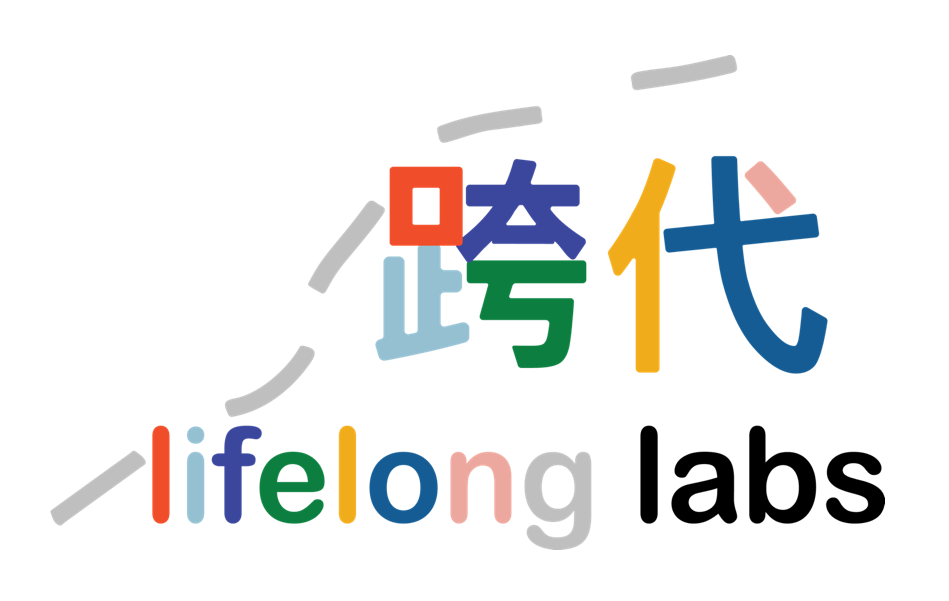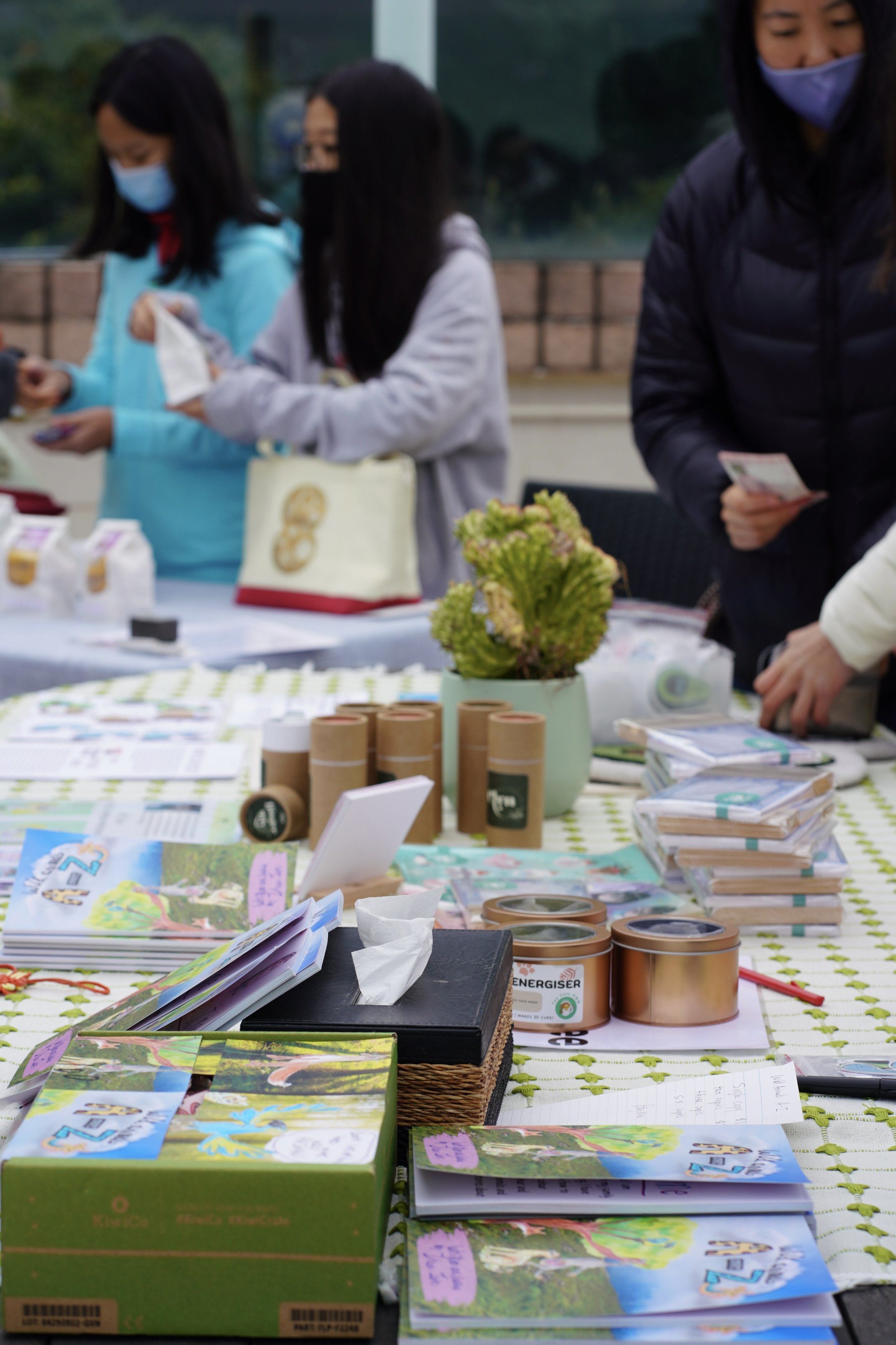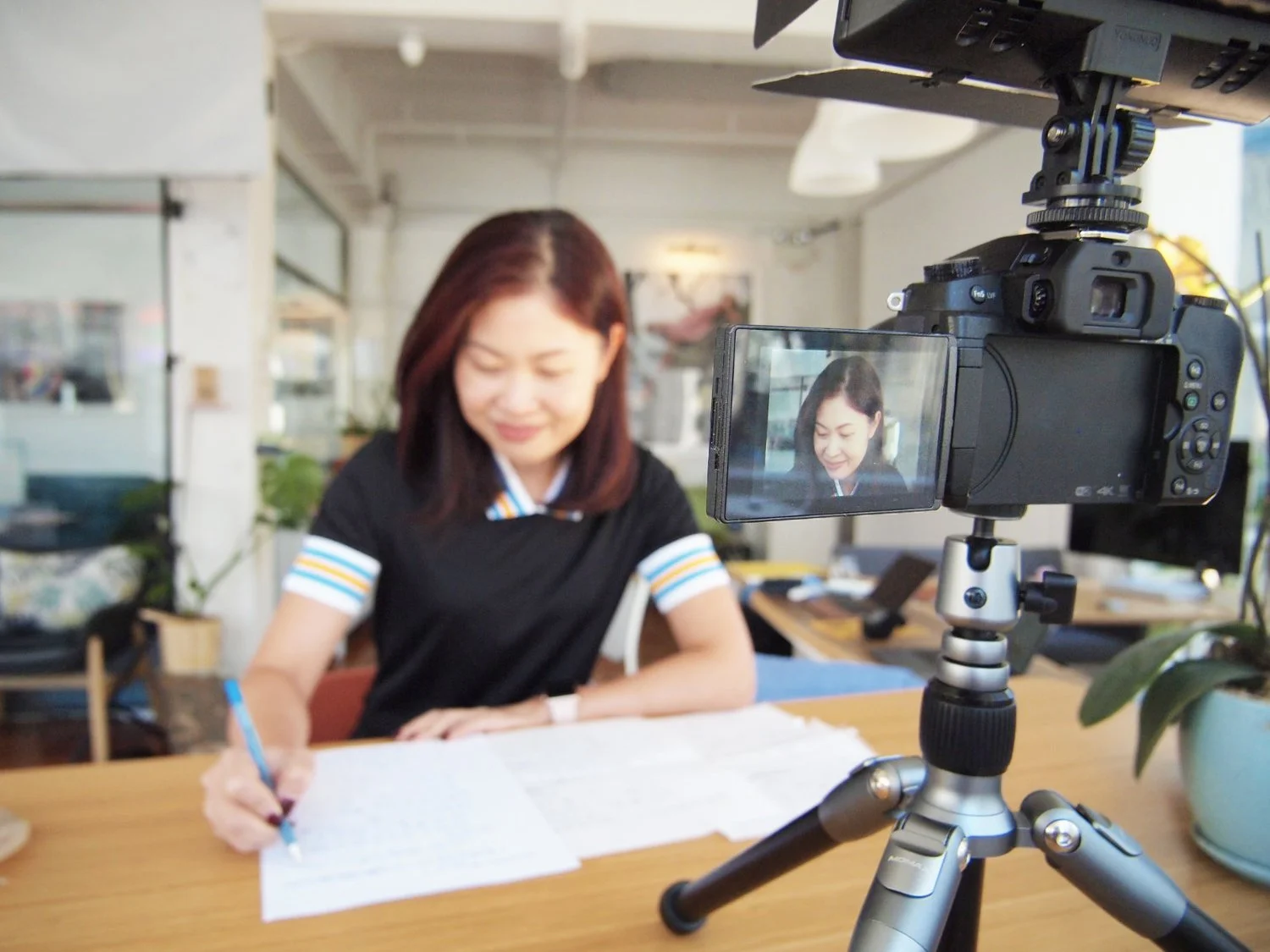Democratic Learning in Context of Hong Kong
The following is a book chapter I wrote in Designing Schools and Democratic Learning Environments: A Global Perspective. Palgrave Macmillan, Cham. Forthcoming. This is a project I collaborated with Dr. Linda Nathan, who is one of Lifelong Lab’s board members and taught me at Harvard Graduate School of Education.
The popular saying amongst parents 「贏在起跑線上」( which directly translates to "winning at the starting line") sums up the the competitive nature of education in Hong Kong. As education attainment positively correlates with life-time earnings, many in this pro-prosperity society measure their own parenting success by their child’s scholastic achievements, focusing on rankings and results rather than process, experiences and skills. The cultural landscape of education in Hong Kong could be characterized as paternalistic, neoliberal, competitive and dated with a hint of colonial remnant. With the lack of personalisation and project-based learning, many top tier public schools have not updated their curriculum in the last two decades; even the “best” schools fail to prepare students for an unpredictable future. The status quo remains partially because major stakeholders, such as the Education Bureau and parents, are blinded by international studies that position Hong Kong’s education system as top in the world, right behind South Korea and Finland, with its secondary students' overall performance in mathematics, science, and reading coming fourth in the world. These rankings fail to measure multiple intelligence including but not limited to interpersonal skills, critical thinking and creative problem solving, skills with growing demand according to the Future of Jobs report. Within a strict system that allows for very few winners, Hong Kong students face immense academic pressures resulting in seven students ending their lives in May 2022, a record high in three years. Student suicide, clinical depression and anxiety are common amongst students in secondary school and univeristy. The unsustainable nature of this education system is mirrored by the city’s pursuit for endless economic growth. The over emphasis on academic performance in literacy, math and science and the lack of student-centered, project-based and experiential learning is why Lifelong Labs was established.
In 2018, Lifelong Lab’s was founded with the vision of democratizing quality creative education by making it accessible and affordable to students of all ages. We do this by accepting students ages two or above, with the only criterion that they have a project they are passionate about, and offer courses at different times, duration and price points to accommodate students from all backgrounds. Our youngest student is two and a half and our oldest student is 86. Regardless of age, students are expected to be committed to their own idea from start to finish, pushing through both the exciting and “boring” parts of completing a project. Located in Central, the heart of the city, Lifelong Labs is an educational makerspace offering after-school programs and holiday camps to students, and 1-on-1 sessions on digital literacy for lifelong learners. Equipped with a kitchen, 3D printer, camcorders, MIDI keyboards, synthesizers, miter saws and other tools, students at Lifelong Labs brainstorm, prototype, iterate and bring their ideas to life, often on an industry standard level. There are no tests or grades, but each student has their own personalized style filled with photographs, writings and videos of process and progress. At the end of each project or camp, parents and siblings are invited to attend in-person exhibitions, concerts, film screenings and fashion shows where students give themselves and receive feedback, similar to a friendly version of the art school critique. In December 2022, students were able to showcase and sell their product at the first Lifelong Labs Christmas market. The five young entrepreneurs ended up raising over US1,000 for the local Refugee Union to combat rising food prices.
Democratic learning in Hong Kong is decentralized and student centric with active participation from the public and private sectors, making high quality education accessible to every student regardless of race and class.
During the school year, we run our signature course The Dreamaker Studio where students are invited to write down ten ideas and those ideas however wild form the basis of the curriculum, working on one project at a time.. For younger students, at the end of a larger project, parents are invited for a feedback session and celebrate the work either through a film premier, exhibition, concert or show and tell. Typically, retiree or kindergarten students attend class in the morning whilst K-12 students attend class in the afternoon to the evening. Examples of past projects include two year-old Austin creating a life-size functional traffic light, four year-old Arjun and six year old Mysha establishing a sticker shop that supports the homeless, 10 year-old Morgan building a cookie business where all proceeds go to the local dog rescue, 11 year-old Jayden is working on a rap album, 12 year-old Jamie and Nico creating an electric skateboard, 16 year-old Olivia starting a clothing line, Tracy who is in her 40s filming for her own cooking channel and blog, Bill who is in his 80s recording covers of old classics and performed at our open mic night.
Tracy has been coming to Lifelong Labs for four years now. She retired early from investment banking and has always had a passion for cooking. One of her first projects was to create a website and short videos that documents her 90 year-old grandmother’s secret recipes, everything from snake soup (a local delicacy) to braised duck with sea cucumber. The idea was to bring restaurant quality food to home cooking, and the goal was to make written and video recipes readily available online. Prior to this project, she never owned a personal laptop. Digital literacy, specifically editing on iMovie and building a website on Squarespace, was something that could open a world of possibilities for her. In these past few years, we have worked on everything from learning how to set up zoom meetings to creating excel spreadsheets that allow her to keep track of the elderly that she visits as a volunteer. Most recently, she took a year-long course to become a certified chef in French cuisine, as part of graduation celebration, she was able to shoot photos and videos airdrop them to iMovie, add a soundtrack and voice over to create a short clip, this is impressive progress, considering she had trouble learning how to drag when she first acquired a MacBook.
The other type of courses that we have is our Creative Genius holiday camps, where students ages 6 and up get a taste of being an architect, fashion designer, filmmaker, photographer, industrial designer, entrepreneurship YouTuber. Contrary to local culture, these course attempt to push back on the idea is that geniuses belong to the realm of math and sciences, that if students are able to find their passion early on, that they too can succeed in creative fields such as art, film and fashion, which many parents deem as a death sentence in light of their retirement funds. These camps are six hours long over three days and resemble the actual day-to-day work in the field. The industry-informed and future-focused curriculum is usually coupled with a field trip, for photography, we go to a waterfall to take long exposures, for fashion, we go to a fabric market etc. The field trip is not only the students’ highlight but also an essential part of learning how to gather materials or scout for new locations to continue the project beyond the camp. For example, during one of our camps which focused on social entrepreneurship, three students collaborated and came up with the idea of hosting a ping pong tournament to fundraise for underprivileged students who could not afford after school activities. Over the course of the three day camp, they filmed a promotional video, designed an online invite and set up a website where people could purchase tickets, which were US$50 each. On a Saturday afternoon, over 20 people participated in the tournament, families and friends of the students came to support the project and the cause, and they raised about US$1,000. A separate trip was arranged to pay a visit to the youth who live in cage homes and subdivided flats in Shum Shui Po, one of the poorest districts in Hong Kong. The three students then distributed the funds in the form of Lai See packets which is a customary red envelope containing a monetary gift. This year the students decided to continue the project outside of the studio and will be hosting a second edition of the tournament this fall.
At Lifelong Labs, there is a strong emphasis on creativity and problem solving. These skills cannot be replaced by algorithms, and prepares students for an unpredictable future in a data driven world. The highly personalized curriculum coupled with individual attention, gives Lifelong Labs students structure and support to pursue ambitious projects that have the potential to impact a whole community. If democracy has to do with making the lives of ordinary people better, then ironically, this type of democratic learning environment, students as citizens (demos) with power (kratos), is not democratic at all, because only a select few have access.
Most, if not all of the students mentioned above belong to the top 1% in Hong Kong, with a monthly household income of at least US$15,000. Many of the students who attend The Dreamaker Studio come from “ultra-high net worth” families of – each with at least US$30 million in assets. In short, the demographic of students who attend Lifelong Labs come from either rich or ultra-rich families, with 20% attending elite public schools and 80% attending private international schools which only accounts for 6% of all schools in Hong Kong. The sad reality is that Lifelong Labs have reinforced the widening achievement gap in Hong Kong, neglecting a large population of students who do not have access to project-based and experiential learning. The main reason why Lifelong Labs has struggled to fulfill its vision in making quality creative education affordable is the lack of institutional support and economy of scale. Lifelong Labs is a stand alone small business run by two full time staff, without any institutional funding or backing. The educational model can be likened to a one room schoolhouse (學堂) found in Qing Dynasty, where one teacher (師父) has only three to six pupils (學徒). The idea is that quality education lies in the trust and attention that enables a teacher to curate a personal experience that matches the student’s interest, skill and level of challenge. The student-teacher relationship is key to the learning experience at Lifelong Labs, and the relationship is not scalable. Despite the original intent, Lifelong Labs is only able to achieve financial sustainability by charging a premium on classes, which means, the majority of classes and courses still only cater to families with relatively large disposable incomes.
To address the issue of widening achievement gap, and the lack of student diversity, Lifelong Labs has partnered with local non-profit organizations such as SoCo to provide free courses to middle school students, paid internships to recent high school graduates and a social entrepreneurship bootcamp that allows college graduates to start their business with start-up capital of US$1,500. This is made possible by collaborating with current students, their parents, interns and staff from SoCo. Students who are working on this project are usually from privilege and looking to apply for colleges and boarding schools abroad. They need a substantive project to write about in their personal statement and stand out from other applicants. Some of these students’ parents are passionate about youth empowerment through education and hold positions in power within the public, private and non-profit sector. They have influence over decisions in grantmaking. By leveraging funds and resources within the Lifelong Labs community, students and parents are able to make a positive impact in Hong Kong.
Lifelong Labs hires youth who live in cage homes and subdivided flats for paid internships in an attempt to democratize the hiring process and who get access to early work experiences and references (recommendation letters). Joe and Ding Ding are some of the interns who have shaped the programs for middle schoolers, by identifying that swimming is a skill that many of their peers lack. As a result created a summer program where middle school students learn how to swim amongst other fun activities such as identifying species through wilderness photography, songwriting by the sea, nutrition and outdoor cooking. Moving forward, Lifelong Labs hopes to shift its focus from project-based to experiential learning, moving the emphasis from materials to skill sets, where students are able to recreate and design their own creative learning adventure outside of Lifelong Labs.
In the context of Hong Kong, a democratic learning environment would look as follows. Parents take a step back and allow students to be drivers of their own learning, exploring interests and pursuing subjects that they are interested in. Schools would free teachers from standardized testing and instead, curate a series of challenges for students that is personal, relevant and creative, teaching students how to learn instead of what to learn. Schools ought to be centers of redistribution, equitably allocating resources and attention, creating equal opportunity to become geniuses and setting all students up for success; where students can discover, master and showcase their knowledge and skill in one domain. This will entail destabilizing the current system and “facade”of meritocracy, requiring drastic but effective changes such as allowing students to select their own subjects in high school based on their passion, separating the Hong Kong Diploma of Secondary Education Exam (HKDSE) into an exit exam for high school and entrance exam for university and making the HKDSE optional for students who wish to pursue an alternative to tertiary education. Students should be able to enjoy a learning environment that is supportive and non-judgmental in which parents and teachers listen to each student’s dream, encourage experimentation and normalize failure. Strategic partnerships should also be formed between the public and private sector whereby education is once again a vehicle for social mobility, kindergartens, schools and universities are a place that corrects inequality instead or reinforcing the achievement gap through scholarship programs, Chinese language programs for minorities, childcare and kindergarten for low-income single and subsidies extracurriculars for gifted athletes and creatives. The Education Bureau is responsible for ensuring the curriculum is up to date with reference to the futures of work and preparing students for real life situations such that students need to rely on nepotism to succeed. Subjects such as economics, law and medicine should be integrated into math, language and science, to give students a taste of what it is like to get into those industries. To conclude, learning must be decentralize, from parent and teacher centric (paternalism) to student centric, public and private sectors should join hands in correcting inequality in educational access and uneven distribution of resources, where each and every student in Hong Kong are able to create, learn and experience with purpose, structure and support. With all changes at the pace of an evolution not revolution, Lifelong Labs aims to fill that lacunae, where learning is personalized and experiential; and prototype the future of education in Hong Kong, one project at a time.





